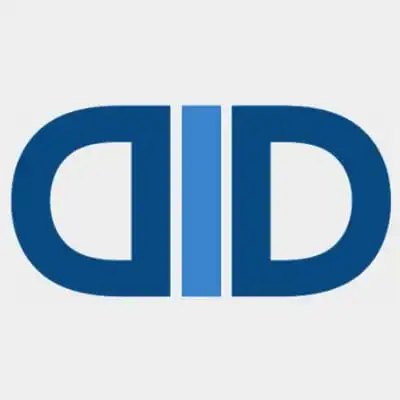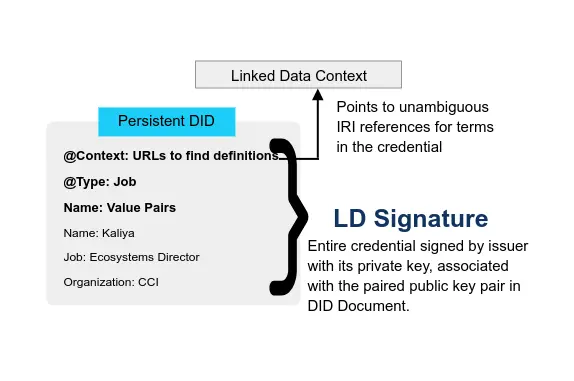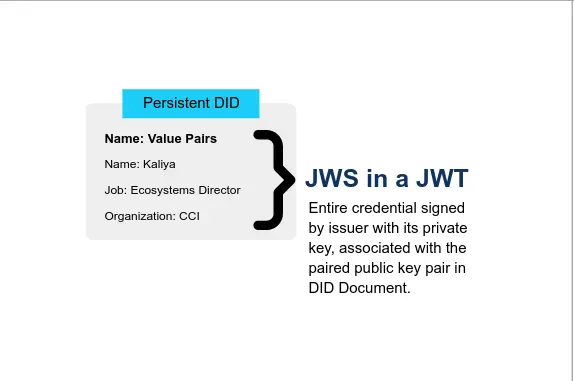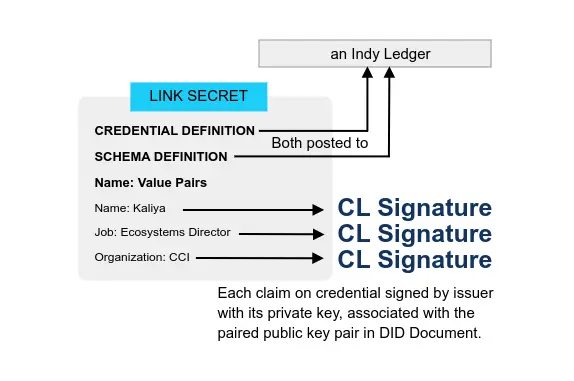Danube Tech
Company
Name: Danube Tech
Main: Website, Blog, Socials: Twitter, Crunchbase, Linkedin, Related: Sovrin Steward, DIF, DHS, RWoT, IIW, ESSIFLab Founder: Markus Sabadello Founded: 2015 Location: European Union, Austria, Wien, Vienna Event: IIW, RWoT Market: Enterprise Focus: ID, Data, Privacy Tech: Universal Resolver, BTCR, Indy, ERC725 Standard: DID, Verifiable Credentials, OAuth,Danube Tech works on advanced Information and Communication Technologies (ICTs) in the field of digital identity and personal data. Following the NSA surveillance scandal, the fall of the Safe Harbor agreement, the E.U.’s new General Data Protection Regulation (GDPR), and several other developments, questions around control, privacy, and economic value of personal data are leading to new legal frameworks, business models, and technological architectures and protocols.
Danube Tech and its partners are working on several emerging technologies, including: 1. The XDI protocol, 2. The FreedomBox personal server, and 3. Blockchain-based identifier registration services.
Grown out of a background of Internet freedom activism and grassroots hacker culture, we continue to explore digital developments at the edge of important political and social questions. We contribute to ongoing discourse about anonymity vs. veronymity, centralization vs. decentralization, as well as sovereign and user-centric digital identity.
Meta
- New Position Paper: Self Sovereign Identity defined Parent: German Blockchain Association Type: Paper Date: 2018-11-15
In a SSI proof-of-concept during the first half of 2018, 3 banks, an insurance company, the Austrian Post, and an institution representing notaries has cooperated to implement a range of use cases based on DIDs, Verifiable Credentials, Sovrin, and the XDI protocol. The use cases included:
* digital ID onboarding for existing clients,
* SSO for new clients,
* sharing of KYC data between organizations,
* dynamic data verification (change-of-address),
* secure communication (e-mail with ID confirmation),
* change of identity service providers,
* Personal ID verification in a peer-to-peer marketplace
Developer Showcase Series: Markus Sabadello, Danube Tech
I have worked on digital identity technologies for a long time, the question of who we are, how we present ourselves, and what do others know about us in the digital world. There’s this concept of user-centric identity, and more recently self-sovereign identity, which places individuals at the center of their online relationships and transactions, and gives us all the ability to create, manage, use, and destroy our online identities according to our own rules.
Policy
- Charter of Fundamental Rights of the European Union Parent: CFREU Type: Paper Date: 2023-01-31 Sector: Cross Focus: Humanitarian
- Convention on the Rights of People with Disabilities Parent: CRPD Type: Paper Date: 2023 Sector: Cross Focus: Humanitarian
- European Convention on Human Rights Parent: ECHR Type: Paper Date: 2017-04-19 Sector: Cross Focus: Humanitarian
- Human Rights Handbook for Parliamentarians Parent: HRHP Type: Paper Date: 2005-08-01 Sector: Cross Focus: Humanitarian
- International Covenant on Civil and Political Rights Parent: ICCPR Type: Paper Date: 1966 Sector: Cross Focus: Humanitarian
- freedom from torture and other cruel, inhuman or degrading treatment or punishment
- fair trial rights
- freedom of thought, religion and expression
- privacy, home and family life
- equality and non-discrimination
- International Covenant on Economic, Social and Cultural Rights Parent: ICESCR Type: Paper Date: 1966 Sector: Cross Focus: Humanitarian
- The Universal Declaration of Human Rights Parent: UDHR Type: Paper Date: 1948 Sector: Cross Focus: Humanitarian
The Charter of Fundamental Rights of the European Union brings together the most important personal freedoms and rights enjoyed by citizens of the EU into one legally binding document. The Charter was declared in 2000, and came into force in December 2009 along with the Treaty of Lisbon
The United Nations Convention on the Rights of Persons with Disabilities (CRPD) is an international human rights treaty adopted in 2006 that reaffirms that all persons with disabilities must enjoy all human rights and fundamental freedoms.
It clarifies that all persons with disabilities have the right to participate in civil, political, economic, social and cultural life of the community.
The European Convention on Human Rights (ECHR) protects the human rights of people in countries that belong to the Council of Europe.
All 47 Member States of the Council, including the UK, have signed the Convention. Its full title is the ‘Convention for the Protection of Human Rights and Fundamental Freedoms’.
What is the Council of Europe? Formed in 1949, the Council of Europe is completely separate from the European Union and much larger, with 47 members compared to the EU’s 28. The UK became a Council member 24 years before it joined the EU. The UK’s membership of the Council would be unaffected if it left the EU
Human rights have pervaded much of the political discourse since the Second World War. While the struggle for freedom from oppression and misery is probably as old as humanity itself, it was the massive affront to human dignity perpetrated during that War, and the need felt to prevent such horror in the future, which put the human being back at the centre and led to the codification at the international level of human rights and fundamental freedoms. Article 1 of the Charter of the United Nations declares “promoting and encouraging respect for human rights and for fundamental freedoms for all without distinction as to race, sex, language, or religion” as one of the purposes of the Organization. The Universal Declaration of Human Rights, adopted by the United Nations General Assembly in 1948, was the first step towards achieving this objective. It is seen as the authoritative interpretation of the term “human rights” in the Charter of the United Nations. The Universal Declaration together with the International Covenant on Civil and Political Rights and the International Covenant on Economic, Social and Cultural Rights, both adopted in 1966, constitute what has become known as the International Bill of Human Rights. Since 1948, human rights and fundamental freedoms have indeed been codified in hundreds of universal and regional, binding and non-binding instruments, touching almost every aspect of human life and covering a broad range of civil, political, economic, social and cultural rights. Thus, the codification of human rights has largely been completed. As the Secretary-General of the United Nations, Mr. Kofi Annan, has recently pointed out, today’s main challenge is to implement the adopted standards
ICCPR is an international human rights treaty adopted in 1966. The UK agreed to follow ICCPR in 1976. It enables people to enjoy a wide range of human rights, including those relating to:
The International Covenant on Economic, Social and Cultural Rights (ICESCR) is a multilateral treaty adopted by the United Nations General Assembly (GA) on 16 December 1966 through GA. Resolution 2200A (XXI), and came in force from 3 January 1976.[1] It commits its parties to work toward the granting of economic, social, and cultural rights (ESCR) to the Non-Self-Governing and Trust Territories and individuals, including labour rights and the right to health, the right to education, and the right to an adequate standard of living. As of July 2020, the Covenant has 171 parties.[3] A further four countries, including the United States, have signed but not ratified the Covenant.
The Universal Declaration of Human Rights (UDHR) is a document that acts like a global road map for freedom and equality – protecting the rights of every individual, everywhere. It was the first time countries agreed on the freedoms and rights that deserve universal protection in order for every individual to live their lives freely, equally and in dignity.
The UDHR was adopted by the newly established United Nations on 10 December 1948, in response to the “barbarous acts which […] outraged the conscience of mankind” during the Second World War. Its adoption recognized human rights to be the foundation for freedom, justice and peace.
Work on the UDHR began in 1946, with a drafting committee composed of representatives of a wide variety of countries, including the USA, Lebanon and China. The drafting committee was later enlarged to include representatives of Australia, Chile, France, the Soviet Union and the United Kingdom, allowing the document to benefit from contributions of states from all regions, and their diverse religious, political and cultural contexts. The UDHR was then discussed by all members of the UN Commission on Human Rights and finally adopted by the General Assembly in 1948.
Related
From other pages on this site. (Beta)
- Name: Decentralized Identifiers Market May See a Big Move: Major Giants- Consensys, Blockstack, Danube Tech
Parent: Xaralite Type: Report Related: Transmute, Consensys, uPort, IBM, Blockstack, Danube Tech, Trinsic, Spherity, Microsoft Related: Transmute, Consensys, uPort, IBM, Blockstack, Danube Tech, Trinsic, Spherity, Microsoft, - Name: Congrats to the 11 wallet providers for being conformant to @EU_EBSI
Parent: iGrantio Type: Tweet Related: ValidatedID, Danube, Waltid, DXCTechnology, CIMEA_Naric, identyum, ThalesDigiSec, Posteitaliane Date: 2022-07-01 Related: ValidatedID, Danube, Waltid, DXCTechnology, CIMEA_Naric, identyum, ThalesDigiSec, Posteitaliane,
provides valuable market size data for historical (Volume & Value) from 2016 to 2020 which is estimated and forecasted till 2026*. Some are the key & emerging players that are part of coverage and have being profiled are Transmute (United States), Consensys (United States), uPort (United States), IBM (United States), Tykn Tech (Netherlands), Blockstack (United States), Danube Tech (Austria), Trinsic (United States), Spherity (Germany), Microsoft (United States).
We are glad to be among the first few along with @ValidatedID @Danube @GATACA_ID @walt_id @DXCTechnology @CIMEA_Naric @identyum @ThalesDigiSec @posteitaliane





